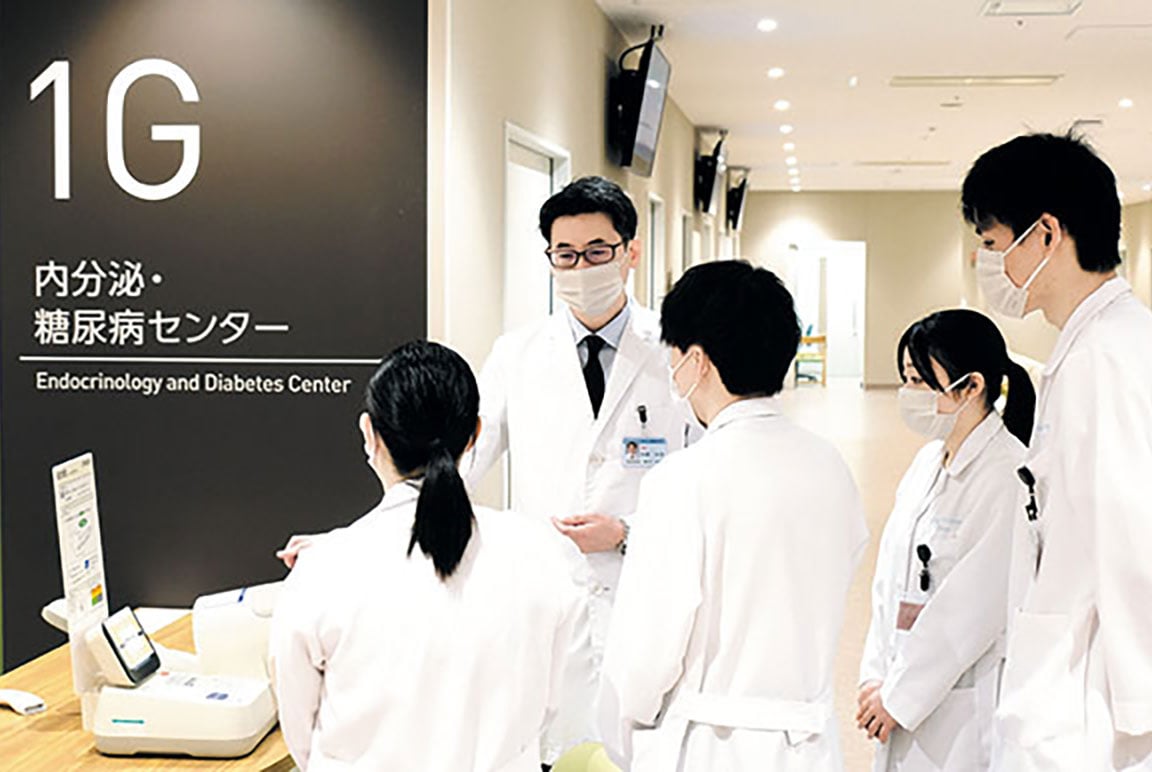The School of Medicine trains physicians who will contribute to regional society through pride as medical professionals, a broad outlook, and a commitment to meeting patients' needs.
Students gain a broad education as medical professionals, an understanding of the importance of bioethics, scientific curiosity, and logical thinking skills through early clinical medical experience that starts during their first two years of study, core curriculum courses, and assignment to a laboratory.
Basic and clinical medical courses lie at the heart of the curriculum, ensuring that students will gain core medical specialized knowledge and skills.
The curriculum also includes medical interviews in English to prepare them to contribute to their region through a high level of communication skills and a global outlook.
The School understands the importance of multidisciplinary education and the science of healthy behavior, and it uses practicum courses in which fourth-, fifth-, and sixth-year students participate in clinical clerkship to help students build clinical skills such as eliciting patients’ medical histories and conducting physical examinations as well as making clinical inferences based on clinical observations.
Reflecting its philosophy of "people treating people," the School strives to train physicians and medical researchers with a high standard of ethics and solid characters.

